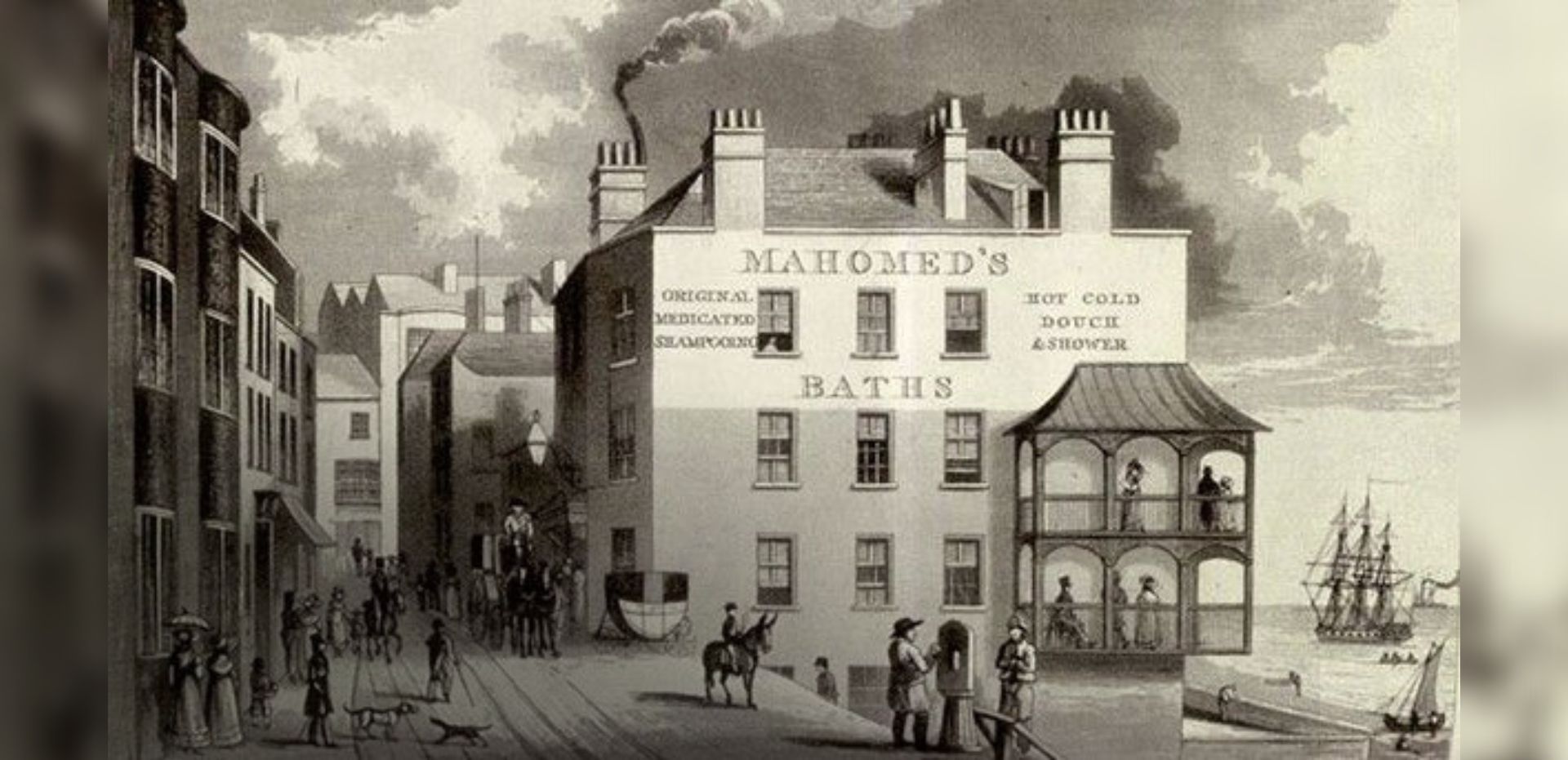Sake Dean Mohamed: The Indian who Invented Shampoo!
BOOKMARK
We take the shampoo for granted, but there was an Indian whose story is one of sheer chutzpah, who challenged all established norms and charted an audacious journey to the West, to leave a strong imprint. In the mid-18th century. Sake Dean Mohamed became one of the first Indians to move to England, set up a restaurant there and also introduce the shampoo.
Sadly, chances are, you have never heard of him.
Far from the salons of Europe, Sake Dean Mohamed was born in 1759, in Patna, which was then under the Nawabs of Bengal. His father was a member of the ‘Nai’ or barber community and worked for the British East India Company, which was on the ascendant, recently taking control of the region after the Battle of Plassey in 1757. The young Dean learnt techniques of making herbal potions, soaps, cleansers and of ‘Champi’ or therapeutic and ubiquitous Indian term for head massages, from his father.
Dean was only 10, when his father died and he was taken into the care of a British officer named Captain Godfrey Baker. Baker served the East India Company’s army as a trainee surgeon, and participated in the wars against the Marathas. But when Baker resigned and chose to move back to his hometown in Ireland, Dean accompanied him and they landed in Cork in 1784. Here, the 25-year-old Dean began to study to advance his education, especially in English language and literature and fell in love with Jane Daly, ‘a pretty Irish girl of respectable parentage.’ In 1786, the couple eloped to another town to get married. In those race conscious times, the marriage created a furore, but the couple seems to have tided over it.
– His book became the first book written in English by an Indian writer
We then hear of Dean in 1793, when he took out a series of advertisements in newspapers seeking subscribers for his book ‘The Travels of Dean Mahomet’. Almost 320 people subscribed to the book, which was published as a series of letters. This book is a milestone in publishing history, as it is the first known English book written by an Indian. In this book, he describes cities of India such as Delhi, Allahabad and Patna, Mughal Emperor Shah Alam II, the decline of Nawabs of Bengal, Rohilla wars and the wars with Hyder Ali.
By 1799, Mahomed and Jane had several children, a house and were financially comfortable. Around 1807, along with his family, Mohamed left Ireland for England. Here, he worked in a steam bath and added a practice of ‘champo’ that would later become famous as ‘shampooing’. Not satisfied with his career, he opted for a new one and in 1810, opened London’s first Indian restaurant, the Hindostanee Coffee House. A newspaper advertisement read,
‘Hindostanee Coffee-House, No. 34 George-street, Portman square—Mahomed, East-Indian, informs the Nobility and Gentry, he has fitted up the above house, neatly and elegantly, for the entertainment of Indian gentlemen, where they may enjoy the Hoakha, with real Chilm tobacco, and Indian dishes, in the highest perfection, and allowed by the greatest epicures to be unequalled to any curries ever made in England with choice wines...’
Interestingly, the restaurant even offered home deliveries. As an another advertisement reads –
‘Such ladies and gentlemen as may desirous of having India Dinners dressed and sent to their own houses will be punctually attended to by giving previous notice…’
However, the venture was not a success. There was no ‘eating out’ culture developed at the time and those would could afford to, still preferred to have ‘authentic’ dishes prepared at home by their private chef. Dean had to disassociate himself from it due to financial difficulties and filed for bankruptcy in 1812. Interestingly, in June 2018, it’s the handwritten menu was auctioned for 8,500 pounds.
He moved with his family to the seaside town of Brighton and his passion for enterprise and previous experience made him open Mahomed’s Baths in 1821, in which he offered ‘the Indian Medicated Vapour Bath’. This was a turning point in his professional career. Over the years, his aromatic oils and massages treated King George IV and King William IV and he was awarded Warrants of Appointment as ‘Shampooing Surgeon’ to the royalty. Hospitals began referring patients to him, his reviews made him a celebrity and also earned him the moniker Dr. Brighton. He even published a book ‘ Shampooing; or benefits resulting from the use of the Indian Medicated Vapour Bath’ which went into three editions. It is during his time, that the word ‘Shampoo’ entered the common English lexicon.
– His aromatic oils and massages treated King George IV and King William IV
After an eventful life, Sake Dean Mohamed died in Brighton in 1851, at the age of 92. He would soon be forgotten in history. It was only in 1980s, that his story was rediscovered in England. Today, he is considered a pioneer among the British-Asian community, though in India his is still relatively unknown.









